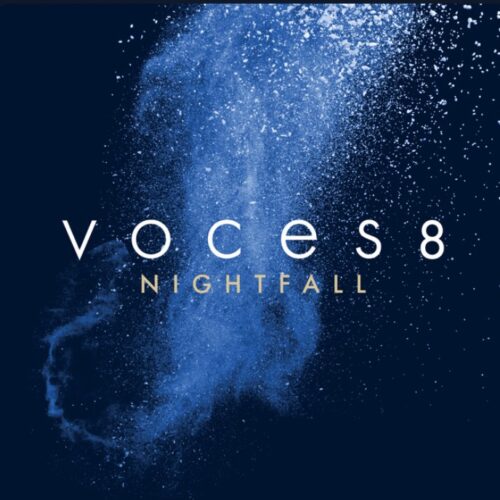On September 27, British chamber vocal ensemble Voces8 released its latest album, Nightfall. As the name suggests, each track is linked in some way to the part of the day normally devoted to sleep.
Considering the album’s theme, all the pieces are quite slow. Voces8 has nevertheless been original in its choice of composers, albeit all fairly recent. Indeed, the oldest are Germany’s Max Reger and Sweden’s Hugo Alfvén, both born in 1972-73, whose works are all too rarely heard in concert or on record. On this album, however, we find works by creators normally associated with the big screen and the video game console, or with purely instrumental music.
L’album commence et se termine par deux psaumes du Coréen Jung Jaeil, dont on doit la bande sonore du chef d’œuvre Parasite. Seules pièces en latin (avec Media Vita de Kerensa Briggs), elles font office d’ouverture et de clôture d’une cérémonie, un peu à la manière des chants grégoriens à la messe.
In Flotavik by Iceland’s Jónsi, renowned guitarist and singer of the post-rock band Sigur Rós, strings provide a beautiful soundscape. By contrast, in the famous piece Expérience by the equally famous Ludovico Einaudi, the voices complement the strings wonderfully. An original added value to a well-known piece used in a number of films, including our own Mommy. The same effect can be seen in Koji Kondo’s Zelda’s Lullaby, where the wordless chorus adds an interesting dynamic to the harp, without distorting the parent work.
Music lovers will also recognize Max Richter’s beautiful, minimalist On the Nature of Daylight, which has appeared on numerous films, including The Arrival, Shutter Island and the series The Handmaid’s Tale and The Last of Us.
On the whole, the works on this disc can be divided into two categories: those that are more tonal, where we can observe an advancement in the discourse with chords progressing towards a climax (Alfvén, Reger, Briggs), and others where we’re looking for more of a soaring ambience and where there’s little movement (Arnesen, Shaw, Davis). But don’t be afraid of dissonance and resonant harmonics, which are omnipresent.
























